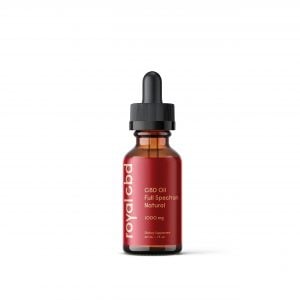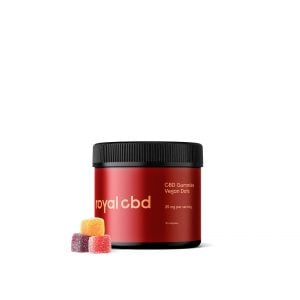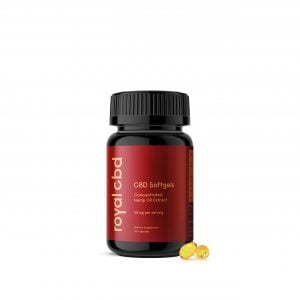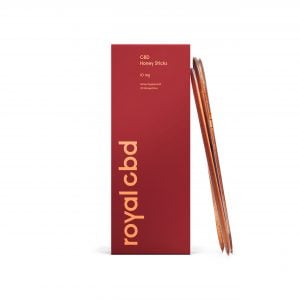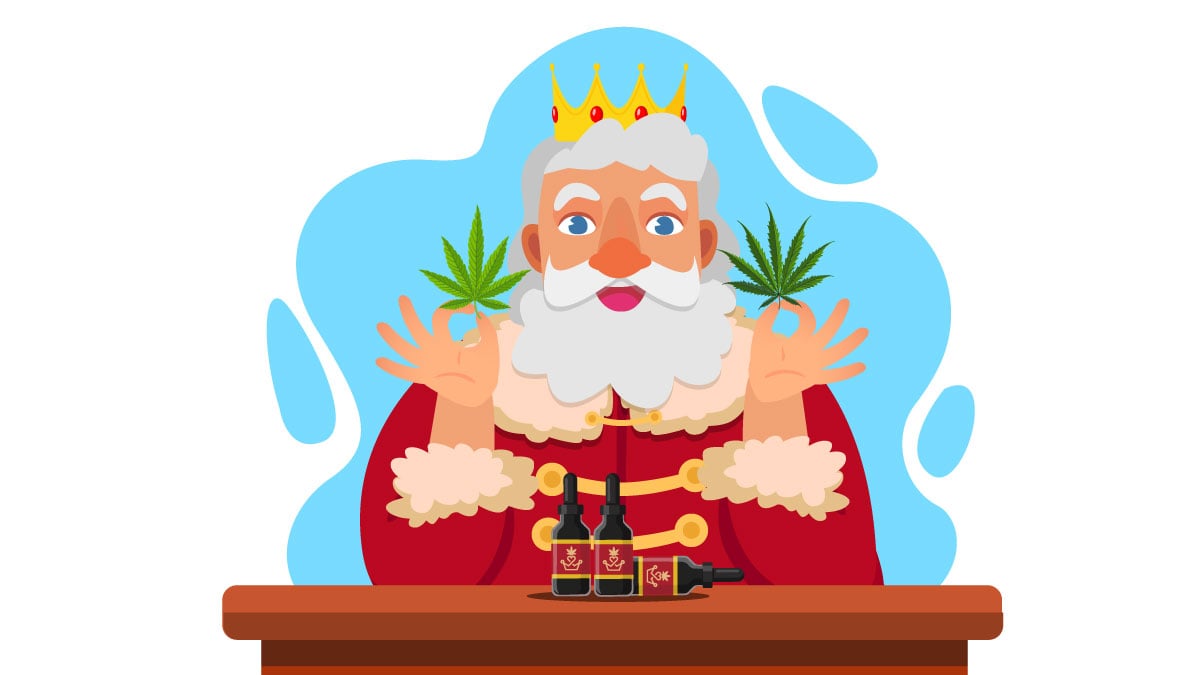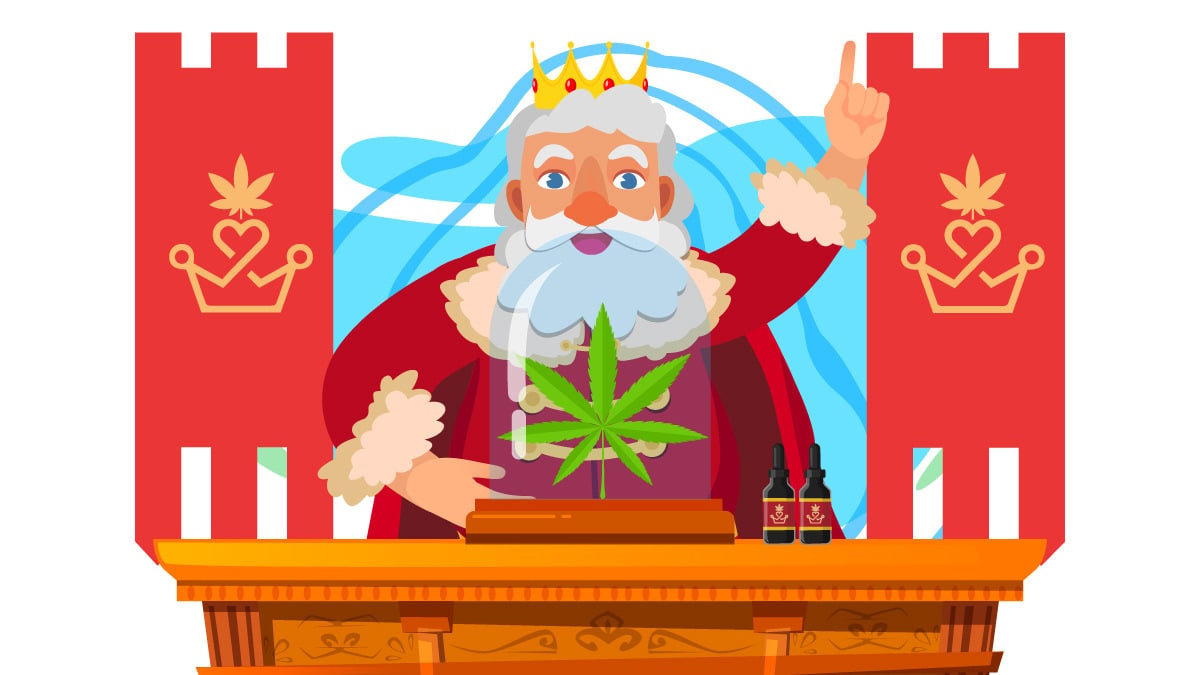The health benefits of CBD seem to be endless.
For nearly every health problem you face, someone raises an argument that CBD oil can help fix that.
We’re strong advocates of hemp and cannabis in general, so we’re not going to deny the health benefits of CBD — but we also won’t tell you it comes without any side effects.
Of course, the side effects of CBD oil are ridiculously mild compared to some popular over the counter (OTC) or prescription drugs — but to think it’s impossible to experience adverse CBD reactions is a fallacy.
In this article, we go over the side effects of CBD oil. We also explain how CBD works in the body and debunk some of the most common misconceptions about CBD oil.
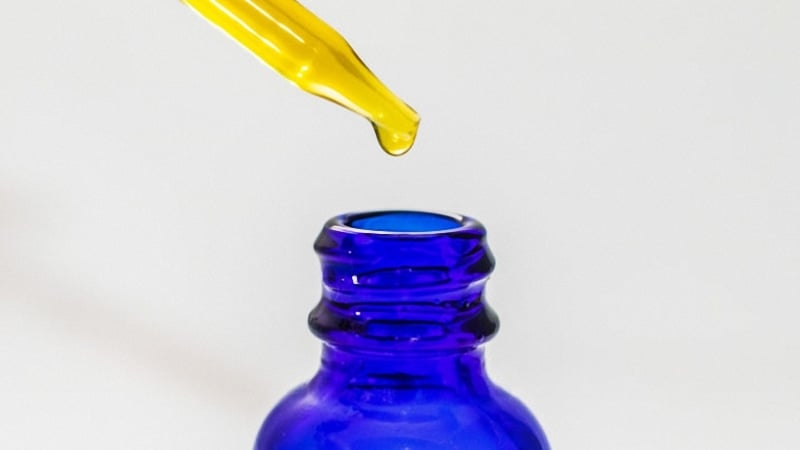
Common Misconceptions About CBD Oil
The misconceptions we discuss below involve CBD and its common link with cannabis, specifically with hemp’s psychoactive cousin — marijuana.
Let’s get some facts straight.
Misconception #1: All CBD Oils Are the Same
No, they certainly aren’t the same — there are a lot of factors that can make CBD oils different from each other.
Some of the main differences between CBD oils include:
A. CBD Oil From Organic Hemp vs. Non-Organic Hemp
Organic hemp is less likely to contain contaminants — which can lead to side-effects.
B. CBD Oils From Isolate vs. Full-Spectrum
CBD isolates lack other naturally-occurring cannabinoids like CBC, CBG, or THC. This is often associated with less effectiveness overall, but also fewer side-effects.
C. CBD Oil From Hemp vs. Marijuana
In order to qualify as hemp, there needs to be no more than 0.3% THC. Anything else is classified as marijuana. CBD oils made from marijuana often contain THC in the final product, limiting their legal status, and increasing the chances of psychoactive side-effects.
D. CBD Oil With Other Ingredients Added vs. Pure CBD Oil
A lot of CBD oils contain other ingredients to improve their effects. This also increases the chances of producing side-effects.
E. Different CBD Oil Strengths
You can find CBD oils in virtually any strength. Higher-strength options are stronger in their effects, but also tend to produce more side-effects.
Misconception #2: Hemp CBD Oil Will Make You High
This is impossible provided that you’ve bought a lab-tested and certified CBD oil made from hemp.
CBD is a non-intoxicant, meaning it won’t make you high. In fact, CBD can mitigate and block the psychoactive effects of THC (1).
The best way to avoid the side-effects of CBD oil is to always check on your vendor’s credibility.
If they can show third-party lab testing results for their products showing less than 0.3% THC — you have nothing to worry about.
However, when a company isn’t open about its quality-control practices you can’t be sure. There’s always a chance the company is hiding their lab tests due to higher than the allowed concentration of THC. Anything more than about 1% THC may produce psychoactive side-effects.
Misconception #3: You Can Get Addicted to CBD Oil
This is another “no.”
Addictive side-effects are widely considered to be one of the worst types of side-effects. This is the problem with a lot of prescription drugs like Oxycontin or Xanax. So it’s important that we clear this one up in a hurry.
Addictive substances increase the release of dopamine in the brain’s pleasure center and over time, the user becomes dependent on the substance. This causes withdrawal symptoms whenever you stop taking the substance.
CBD doesn’t fit the scientific definition of a drug in a sense that it doesn’t attach to a specific receptor (or set of receptors) in the brain to trigger the release of dopamine.
Instead, CBD actually works to help curb addiction by balancing the levels of neurotransmitters like glutamate and dopamine in the brain (2).
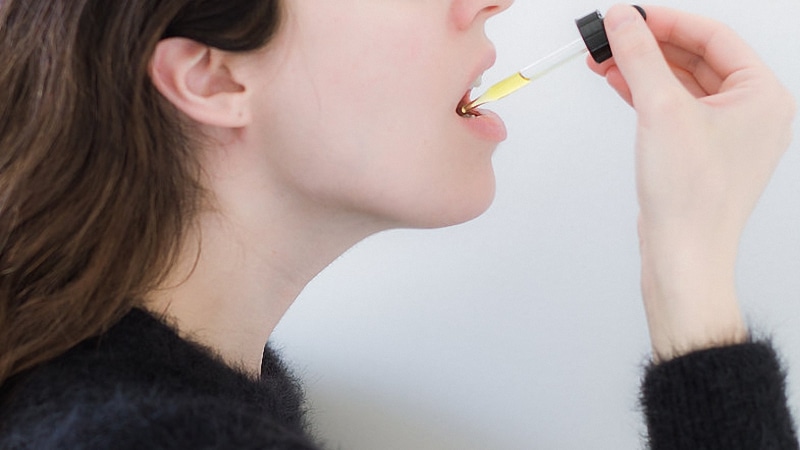
How Does CBD Work in the Body?
In order to understand how CBD affects us, we need to dive deeper into the Endocannabinoid System (ECS).
The endocannabinoid system is a complex network of receptors and neurotransmitters spread throughout the body. Our body uses naturally produced hormone-like compounds called endocannabinoids to interact with this system. The phytocannabinoids (phyto- meaning “from plants”) closely resemble our own endocannabinoids — allowing them to interact with the ECS as well.
The ECS is responsible for controlling the majority of biological processes in the body and brain, such as memory, cognitive functioning, pain perception, mood, temperature control, immune response, and more.
However, the main reason humans have an endocannabinoids system is to maintain the chemical balance in the body known as homeostasis.
CBD has a physical effect on the body and brain. After you consume this cannabinoid, it binds with the ECS receptors of the endocannabinoid system, interacting with the central and peripheral nervous system, without creating any psychoactive effects (3).
On top of that, CBD acts on 60 different molecular pathways. It can also indirectly block the activity of the ECS receptors in the brain, where THC binds and induce a high. This means that THC becomes less potent when CBD is around in larger quantities.
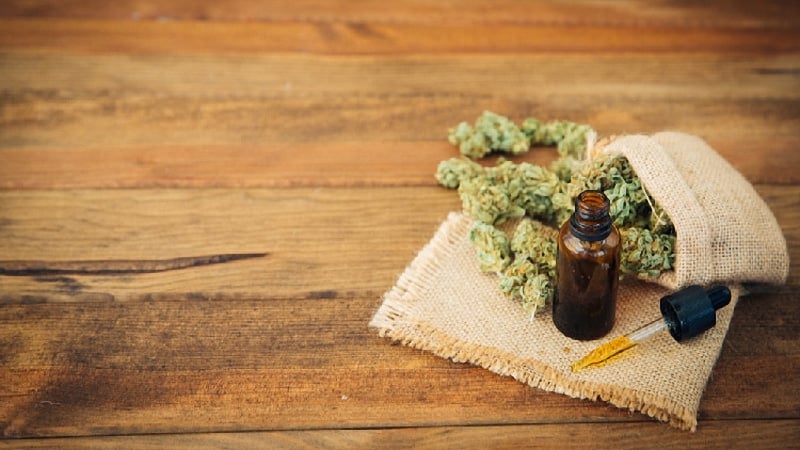
What Are the Side Effects of CBD Oil?
Numerous studies have shown that CBD is much safer than some popular OTC and prescription drugs, and it comes with only a few mild side effects (4, 5).
Even the WHO stated in 2017 that cannabidiol is an effective and safe substance.
Nevertheless, although minor, the side effects of CBD are real — especially when taken with other medications. At Royal CBD, we feel obliged to discuss them so that you get a full understanding of what you’re ingesting.
Here are some possible adverse CBD reactions
1. Dry Mouth
Dry mouth is a common side effect of CBD oil; it’s actually typical of all cannabis products, whether derived from hemp or marijuana.
That’s because cannabinoids in the cannabis plant, including CBD, inhibits saliva production.
Luckily, you can easily deal with this side effect by consuming plenty of fluids before, during, and after you take CBD oil. This will also prevent any dehydration.
2. Low Blood Pressure
Higher doses of CBD oil have been shown to cause a small drop in blood pressure.
This may be troublesome for people taking medication for high blood pressure (causing blood pressure to drop too low) or those who have been diagnosed with low pressure.
This side effect of CBD oil is often linked to a feeling of lightheadedness, which makes many people feel uncomfortable. If you can relate to any of the above cases, it’s necessary to consult with your doctor before consuming CBD products.
3. Dizziness
CBD affects everyone differently. There are many factors that come into play, such as gender, lifestyle, unique biochemistry, and CBD dosage.
At lower doses, CBD is stimulating, improves focus, and has an uplifting effect on mood.
Higher doses, on the other hand, can induce drowsiness.
Dosages of about 100 mg of CBD per session will begin to produce sedative effects. If this is how high levels of cannabidiol affect you, it’s important not to work on heavy machinery or drive a vehicle for the duration of this state.
4. Diarrhea
This reaction is likely caused by the other ingredients in your CBD oil, as CBD has strong gastroprotective qualities.
When the cannabinoid indirectly stimulates the ECS in the digestive tract, it decreases the levels of gastric acid and improves blood flow in your stomach lining to speed up the regeneration processes.
However, CBD is usually contained in a carrier oil, most often in MCT oil.
The MCT oil can irritate the stomach lining and cause diarrhea when consumed in large amounts, so if you ingest way more CBD oil than an average user, you might want to switch to a different carrier oil, e.g. olive oil or emu oil.
5. Negative Interactions With Other Medications
Your liver is “equipped” with the cytochrome P-450 system that is responsible for metabolizing drugs.
CBD can inhibit the system’s ability to process certain drugs, which can lead to higher levels of these substances in your body at one time.
Consequently, the interaction of CBD with other medications can cause unwanted side effects, and sometimes, an overdose on those drugs.
This brings us to another important question.
Can You Overdose on CBD Oil?
CBD and other cannabinoids are non-toxic, with no fatal overdose cases ever reported.
It’s also impossible to overdose on CBD oil. According to a study from 2011, chronic use and high doses up to 1,500 mg of CBD per day are well tolerated in humans (6).
Moreover, the Department of Health and Human Services reports there are “no signs of toxicity or serious side effects observed following chronic administration of cannabidiol to healthy volunteers, even in large acute doses of 700 mg per day.” (7)
As you can see, there is strong evidence supporting CBD as a safe substance with only minor side effects.
But as we said at the beginning of the article, CBD oil is safe only when obtained from a reputable source that can show third-party certificates of analysis for their products.
The Dangers of Buying CBD Oil
There’s an abundance of poor-quality CBD oil manufactured by shady companies who want to cash in on the emerging market.
For many customers, it’s challenging to get high-quality CBD oil on the first try.
The main danger of buying CBD oil from an unknown source is poor quality hemp.
Being a bioaccumulator, hemp absorbs chemicals from the ground, such as lead and mercury. When grown in polluted soil, hemp significantly loses quality due to the presence of these contaminants.
In addition, companies selling cheap CBD oil often use pesticides, herbicides, and chemical fertilizers during cultivation — which all end up in the final product.
Low-quality CBD oil may also come with toxic solvent residue. The solvents used in such products are typically propane and butane, both of which are harmful to our health.
Final Thoughts on the Side Effects of CBD Oil
Scientists have concluded that CBD oil is safe for human consumption and it comes with only a few minor side effects.
While cannabinoids affect everyone a bit differently, it looks like the majority of CBD users can consume CBD oil without any adverse reactions.
We always stress the importance of buying CBD products from a certified source.
Here at Royal CBD, our certificates of analysis from third-party laboratories guarantee that what you buy is what you get, making your experience with cannabidiol entirely safe.
Have you ever had any adverse reaction to CBD?
Let us know in the comments below!
References:
- Russo EB. (2011). Taming THC: Potential Cannabis Synergy and Phytocannabinoid-terpenoid Entourage Effects. British Journal of Pharmacology, 163(7), 1344–64.
- Prud’homme et al. (2015). Cannabidiol as an Intervention for Addictive Behaviors: A Systematic Review of the Evidence. Substance Abuse: Research and Treatment, 9, 33–38.
- Zou, S., & Kumar, U. (2018). Cannabinoid Receptors and the Endocannabinoid System: Signaling and Function in the Central Nervous System. International journal of molecular sciences, 19(3), 833.
- Iffland, K., & Grotenhermen, F. (2017). An Update on Safety and Side Effects of Cannabidiol: A Review of Clinical Data and Relevant Animal Studies. Cannabis and cannabinoid research, 2(1), 139–154.
- Welty, T. E., Luebke, A., & Gidal, B. E. (2014). Cannabidiol: promise and pitfalls. Epilepsy Currents, 14(5), 250–252.
- Bergamaschi, M.M., Queiroz, R.H., Zuardi, A.W., & Crippa J.A. (2011). Safet and Side Effects of Cannabidiol, a Cannabis Sativa Constituent. Current Drug Safety, 6(4), 237–249.
- Cunha, M.J., Carlini, E.A., Pereira, A.E., Ramos, O.L. (1980). Chronic Administration of Cannabidiol to Healthy Volunteers and Epileptic Patients. Pharmacology, 21(3), 175–185.
